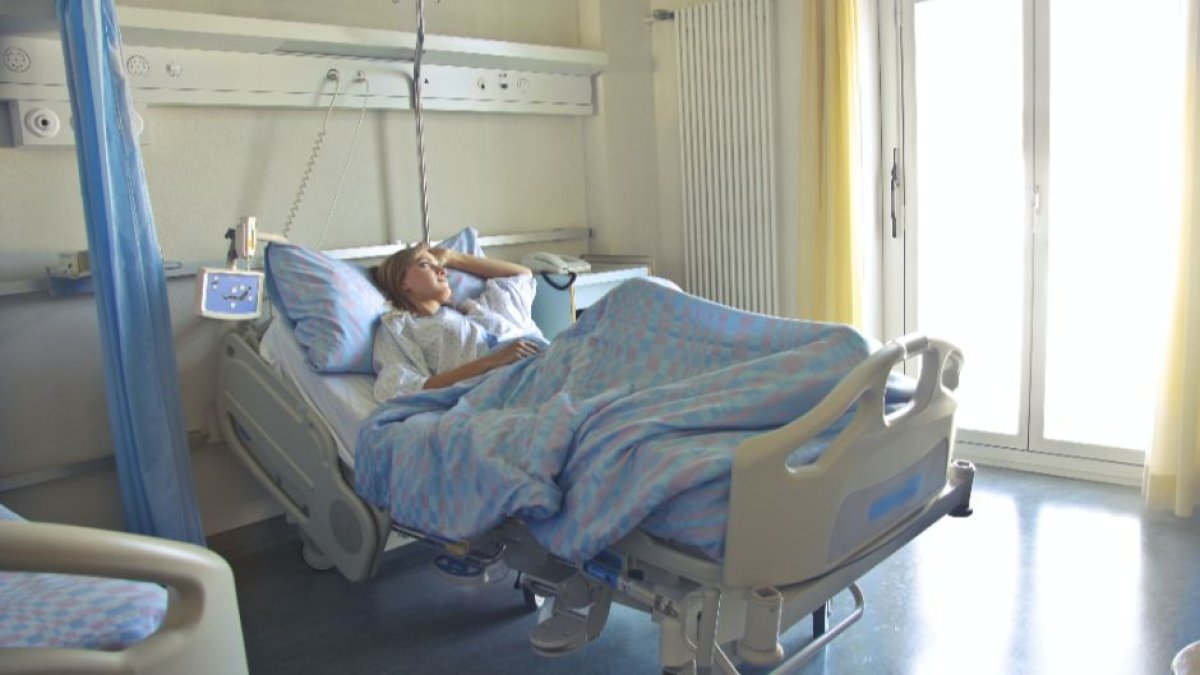UK: Experts want to take medical care away from young woman desperate to live, court says she can't decide
The court determined that she is not competent to make decisions regarding her treatment because she does not trust her doctors and is unwilling to accept her fate.

(Pexels -Andrea Piacquadio)
A dangerous court ruling in the UK has ignored a 19-year-old's pleas for life by stating that she cannot make the decision to withdraw medical treatment that keeps her safe. This is despite the fact that she is conscious and without any diagnosed brain damage.
A Court of Protection judge decided that a woman, known only as TS (for legal reasons), is not competent to make decisions about her treatment and gave the National Health Service (NHS) the power to choose for her. However, the issue is that the NHS wants to withdraw her care.
ST suffers from a rare mitochondrial genetic disease that affects the kidneys, causes chronic muscle weakness and hearing loss. The young woman's life currently depends on regular dialysis treatment, a feeding tube and other intensive care. But despite all this, the disease does not affect her mental capacity, so the young woman remains conscious and willing to live.
In fact, ST hoped he would be allowed to go to Canada to try an experimental treatment known as nucleotide therapy, which could give her the opportunity to get on with her life.
However, the NHS hospital argues that the young woman's death is inevitable and while acknowledging that the prognosis is uncertain and that ST could survive for some months, it insists that the young woman is only deluding herself into thinking she has a chance of survival.
The hospital hopes to withdraw dialysis and approve a "palliative care plan," meaning she would only have a few more days to live because she would die of kidney failure.
Experts: ST does have the ability to decide
Psychiatric experts who evaluated the young woman told the court that ST has the mental capacity to make treatment decisions. However, the judge in the case concluded that she lacked the capacity to comment on the matter because she distrusts doctors.
"ST is unable to make a decision for herself in relation to her future medical treatment, including the proposed move to palliative care, because she does not believe the information she has been given by her doctors," reads the ruling insisting on the "complete inability to accept the medical reality of her position."
"She is frightened by the prospect of dying and clings to her desire to survive despite what her doctors have repeatedly told her is an unsurvivable condition," adds the decision of the judge who recognizes the desire to move forward.
That the young woman does not accept her prognosis "does not incapacitate her"
Anscombe Bioethics Centre, a research institute in Oxford that serves the Catholic Church in the United Kingdom and Ireland was outraged by the judge's decision and stressed that whether or not the young woman accepts her prognosis does not incapacitate her from making decisions about her life.
"Someone can make a mistaken decision, or one that is objectively unreasonable, or unwise, or even perverse or a decision that is harmful to themselves or unfair to others, and yet have capacity to make that decision. This is why we can hold people responsible for the decisions they make," the center said in a statement, highlighting that the Mental Capacity Act emphasizes that someone should not "be treated as incapable of making a decision simply because they make a reckless decision."
The justice system also silenced parents
The parents of the young woman wanted to make public their daughter's illness with the intention of raising funds and being able to take her to Canada, but the court issued a "Transparency Order" that prevents family members and hospital members from giving any information that may lead to the identification of TS.
The woman's parents filed a request to have that order reconsidered so that the necessary money could be collected. However, the court has not considered this request even though it has already held three hearings on the case since the petition was made.
"This has been a year of continuous torture for the family. Not only are we anxious about our beloved daughter’s fight for survival, but we have also been cruelly gagged from being able to speak about her situation. We are not allowed to ask people for prayers or for help which she desperately needs. It is a matter of life and death for our daughter to raise money for treatment in Canada, so these arbitrary reporting restrictions are literally killing her," said a statement issued through her lawyers and shared by Christian Concern.
"We are shocked to be told by the judge that our daughter does not have capacity to make decisions for herself after all the experts have said that she does. We are very distressed by this injustice, and we hope that, by Jesus’s grace, this will be corrected on appeal."

























